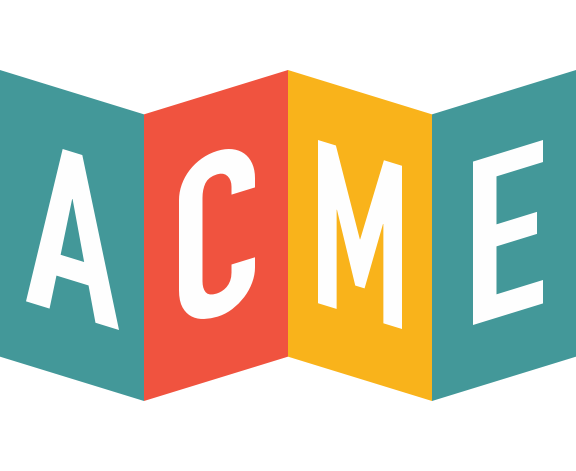
CAE Certification and its Impact on Nonprofits
A CAE, or “Certified Associate Executive” certification, can greatly increase the perceived integrity and prestige of your nonprofit’s employees. If you’ve been chipping away towards your 5 year anniversary working for a nonprofit, it might be time to look into getting your CAE. Getting your CAE isn’t as simple as applying for one and paying a small fee, however. There is work involved to move through the certification process. If you’re interested in learning about the eligibility process and requirements, we’ll go through each, including a list of benefits associated with having a CAE.
What is CAE Certification?
A CAE certification is similar to having a degree in association management. It’s a means of showing you’ve gone through the necessary studies to prove that you’re, without a doubt, capable of being an executive. This is one of the highest professional credentials you can earn. The American Society of Association Executives (ASAE) created the CAE certification as a way to show someone’s capability to learn, grow, and move with organizations.
Who Should Get CAE Certified and Who is Eligible for CAE?
First, let’s go over the eligibility requirements to get CAE certified:
- You should have at least 5 years of experience working at a qualifying association. Qualifying associations are nonprofits or association management companies.
- You must have either a bachelor’s degree or an additional 3 years of experience. If you don’t have a bachelor’s degree, you can still be eligible with 8 years of relevant working experience.
- You have to complete 100 hours of association-management-related professional development within 5 years.
- And finally, you must adhere to the ASAE standards of conduct. This means you cannot have any association-management-related felonies and disclose any felony convictions to the CAE commission.
Anyone who’s looking to up their professional prowess should go for CAE certification. Getting CAE certified as someone involved in a nonprofit can raise a few eyebrows as it takes real work to achieve this type of certification. It shows your dedication to what you do and your willingness to do what it takes to achieve your goals in an honorable way. Aside from the face value of getting a CAE, organizations that require careful planning and big execution such as museums, animal conservation groups, and other organizations with a lot of moving parts can see employee benefits as well. Going through the CAE courses teaches you a lot about problem-solving skills and professional development, leading to greater productivity within the organization they work in.
How does CAE Certification Work?
A CAE certification works by completing all of the necessary exam prerequisites, paying your fee, and then passing your test. The ASAE will recognize you as officially certified and you can start including your certification on resumes and in professional settings.
How much does CAE certification cost?
The CAE certification costs $750.
Does CAE certification expire?
Yes, your CAE certification will expire every 3 years. In order to maintain your certification, you have to continue your learning and earn credits. We’ll get more into credits later.
Aspects of CAE Certification
The 100 hours you need to complete the eligibility requirements for your CAE can be completed in a variety of ways.
- Online content to study at your own pace (conferences, seminars, workshops, etc.) Instead of worrying about keeping up with classes or group studies, you can move at your own pace. There are CAE study guidelines you can follow to gain your hours. Keep in mind, this can only make up half of your required education hours.
- College/university classes count toward CAE. Classes you take related to association or nonprofit management can count toward your CAE certification. You can earn 15 credits per semester, helping you towards the 40 you need for certification.
- Mentoring/coaching hours for CAE. If you benefit more from one-on-one learning, you can sign up to work with someone individually to earn credits based on the hours you spend with them. You earn 0.5 credits per hour spent with a mentor with a maximum of 10 credits available to be earned.
- Group study for fellow CAE seekers. Creating your own study group is another great way to learn with others. As long as you have at least 3 other people in your group studying to take the CAE certification exam, you can earn 1 credit per hour spent for a maximum of
Getting Your CAE Certificate
The actual process of getting your certificate can sound a little confusing at first, but we’ll help you through it. Make sure you carefully check what you need to have completed.
- Complete the eligibility requirements first. You can do this with the help of an approved CAE certification provider, which is an organization that has been approved to help people through the certification process. It’s important to find one of these providers to ensure you’re learning the correct things for your test and getting the hours required to take it.
- After you figure out if you’re eligible with the guidance of a CAE provider, you can apply to take the bi-yearly CAE certification exam. It’ll be a 4-hour test with 200 multiple-choice questions.
- Make sure you study everything you learned!
- Then, after you ace your test, you’ll finally get your CAE certification.
Make sure you work with a CAE certification provider to ensure you’re not missing out on hours!
What CAE Certification Would Mean For Your Organization
A CAE certification opens up a lot of professional opportunities and recognition. Not only does getting CAE certified help you become a better association executive, but you’ll also get the chance to network with similar-minded individuals in a variety of industries. People watching your nonprofit will begin to see more of the value, integrity, and expertise your organization has, attracting more talent as well. Although getting your CAE requires continuous effort, the benefits are worth it in the end.

